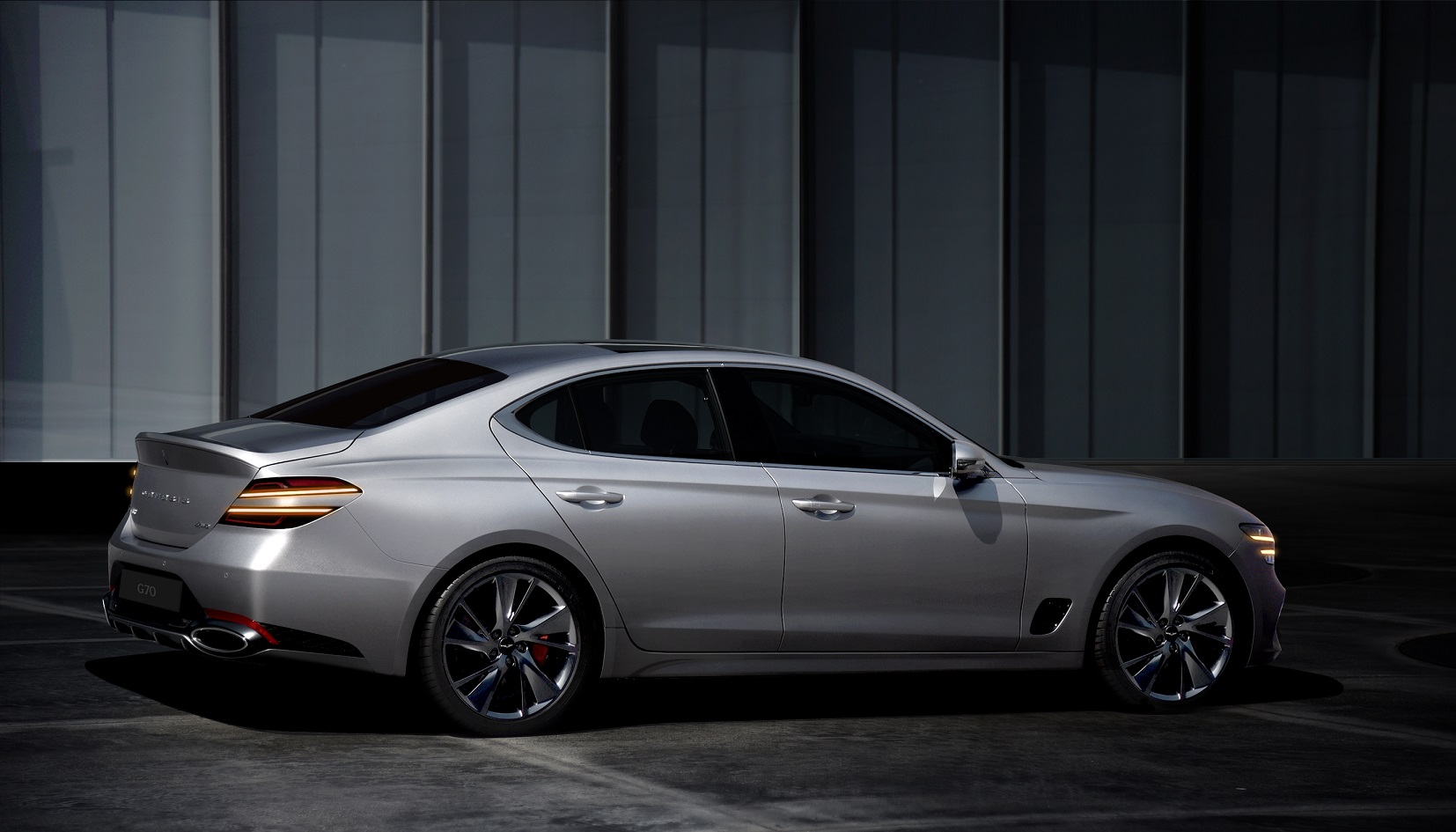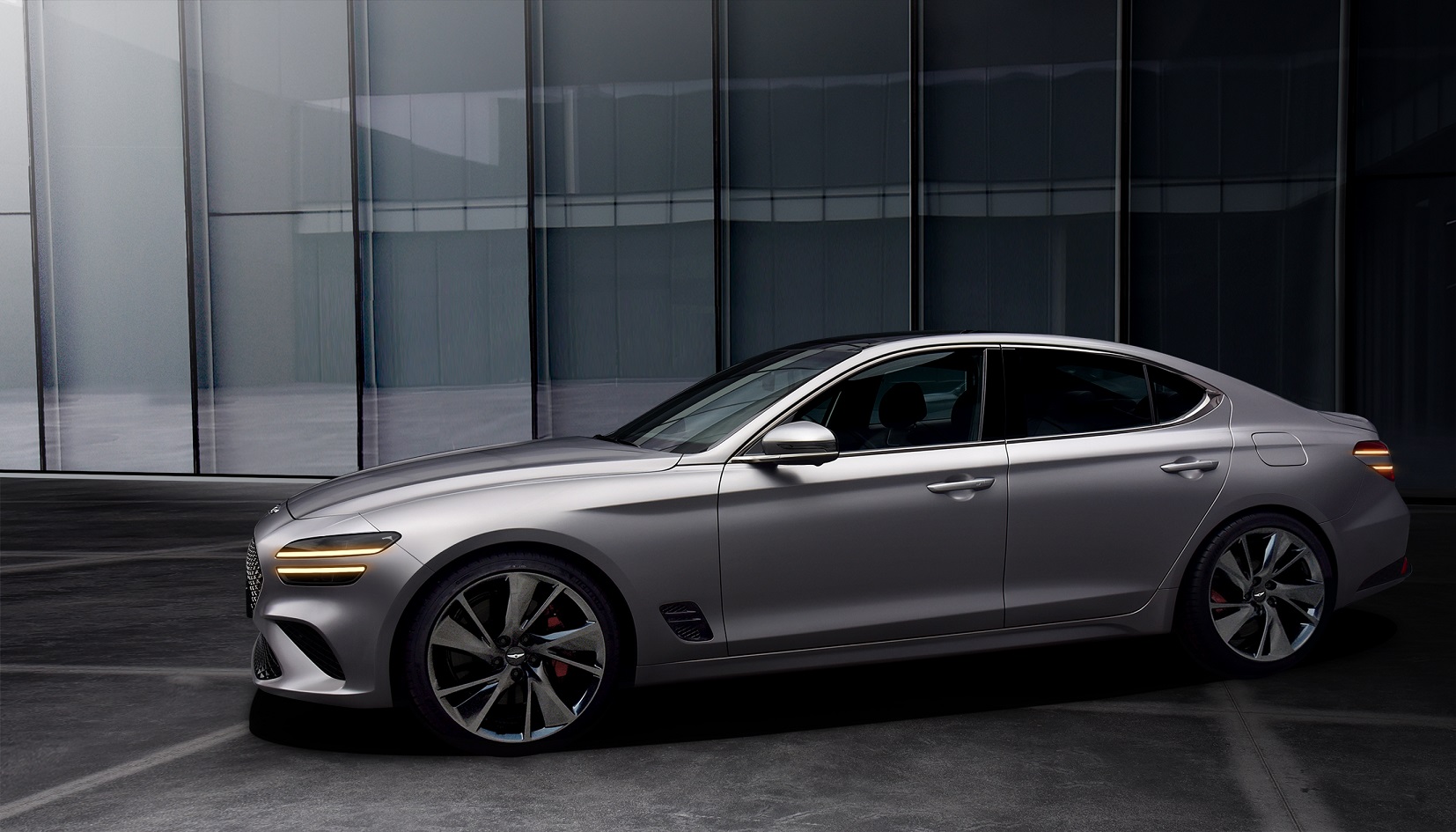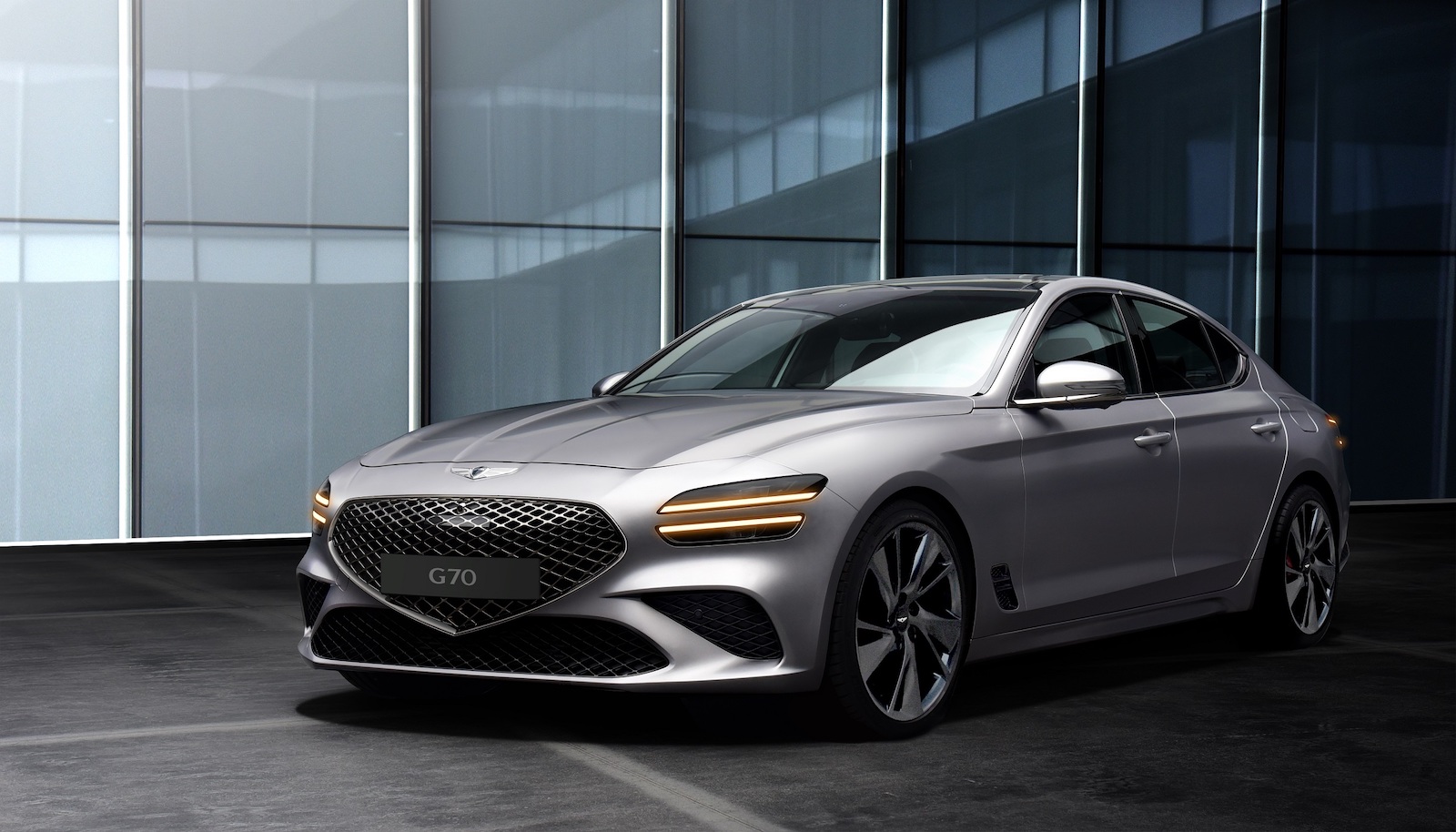Genesis unveiled the G70 sports sedan with an intention clear from the get-go — to take down the all-conquering BMW 3-Series. Although there are some ways to go before they can land a punch, Genesis’ first attempt in the segment opened eyes to show that the Korean luxury brand is not one to brush off. Genesis now has unveiled the refreshed G70 for the 2022 model year, gaining an entirely reworked design, as well as upgraded technology systems.
Taking inspiration from the G80 executive sedan and the flagship G90 luxury sedan, the G70 has a familiar face that is dominated by a colossal grille taking the shape of the Genesis crest. The lower grille has very distinct air intakes. At the same time, illumination comes from the familiar full LED dual horizontal stacked headlights that are slimmer and curvier than the G80 and G90.
The Sport Package has blacked out chrome grilles for a more aggressive appeal. While the large and imposing grille may have projected an elegant and imposing presence for its larger siblings, the G70 just doesn’t achieve this desired effect. Unique and futuristic looking it may be, the front fascia seems bulbous and overly cumbersome, not the best image for a sports sedan.
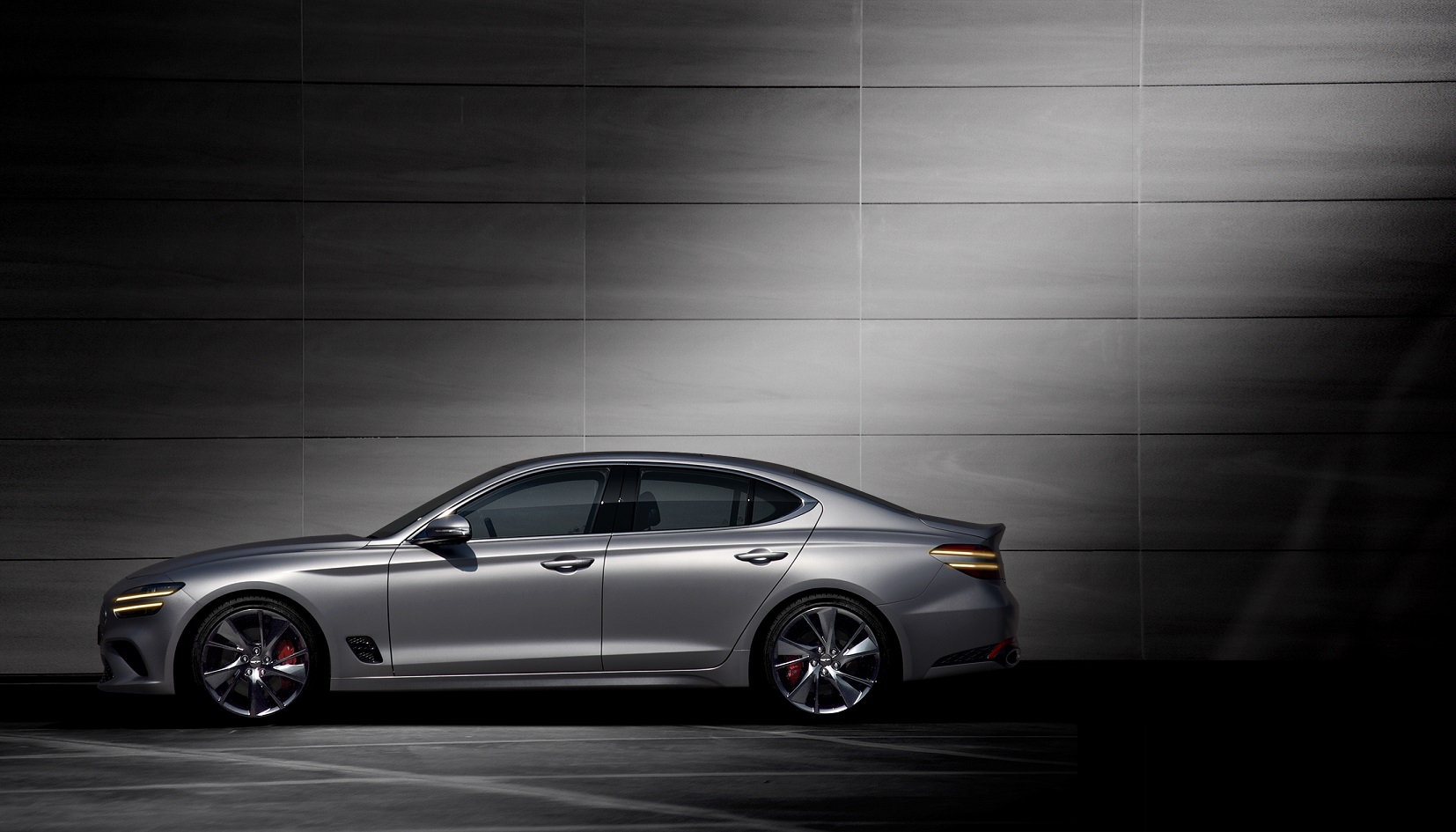
The side profile of the G70 is far more appealing with its classically proportioned silhouette of a long hood and short deck. The strong shoulder line that extends from the front wheel arches across the length of the car gives it a rakish, sporty stance. The unique 18-inch (19-inch on the Sport Package) wheels add subtle yet tasteful touches to the exterior.
The rump of the G70 is a thing of beauty with soft, flowing curves, integrated duck-tail spoiler on the boot lid and Genesis written boldly across the rear. Taillights follow the way of the headlights, adopting the dual horizontal stacked design, which ties in the G70 from front to rear. The G70 comes with 14 different exterior colours to choose from, and standard variants come with single dual-tip exhaust; Sport variants get dual oval exhaust tips, one on each side.
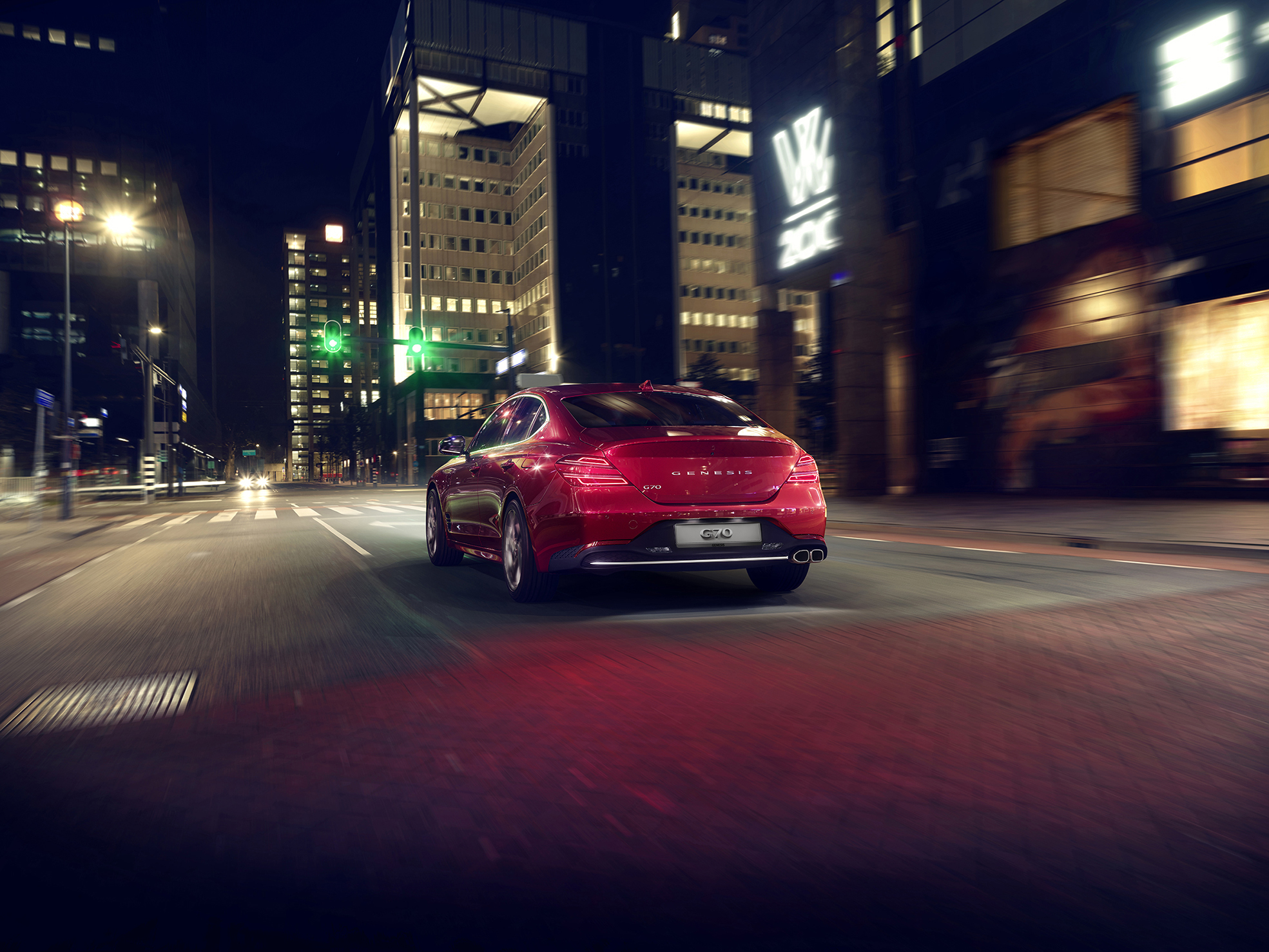
Although Genesis has opted to not update the powertrain, the G70 isn’t just all show and no go. The G70 carries over the 252hp 2.0-litre turbocharged four-cylinder, the 200hp 2.2-litre turbodiesel, as well as the range-topping 370hp 3.3-litre twin-turbocharged V6. The latter is similar to the one found in the Kia Stinger GTS. Genesis, however, has yet to reveal if the newer, larger 304hp 2.5-litre and 380hp 3.5-litre V6 found in the rest of the range will be made available for the G70.
Gone is the manual gearbox, with the 8-speed torque converter being the only available transmission driving the rear wheels, with an all-wheel drive available as an option. Genesis has given the G70 a Sport Package that includes both aesthetic and some performance upgrades as well. Aside from the larger wheels and blacked-out chrome trims, Sport Package includes larger Brembo brakes and a Limited Slip Differential (LSD). At the same time, the V6 gets a Variable Exhaust Muffler that generates a throatier exhaust note when in ‘Sports+’ mode.
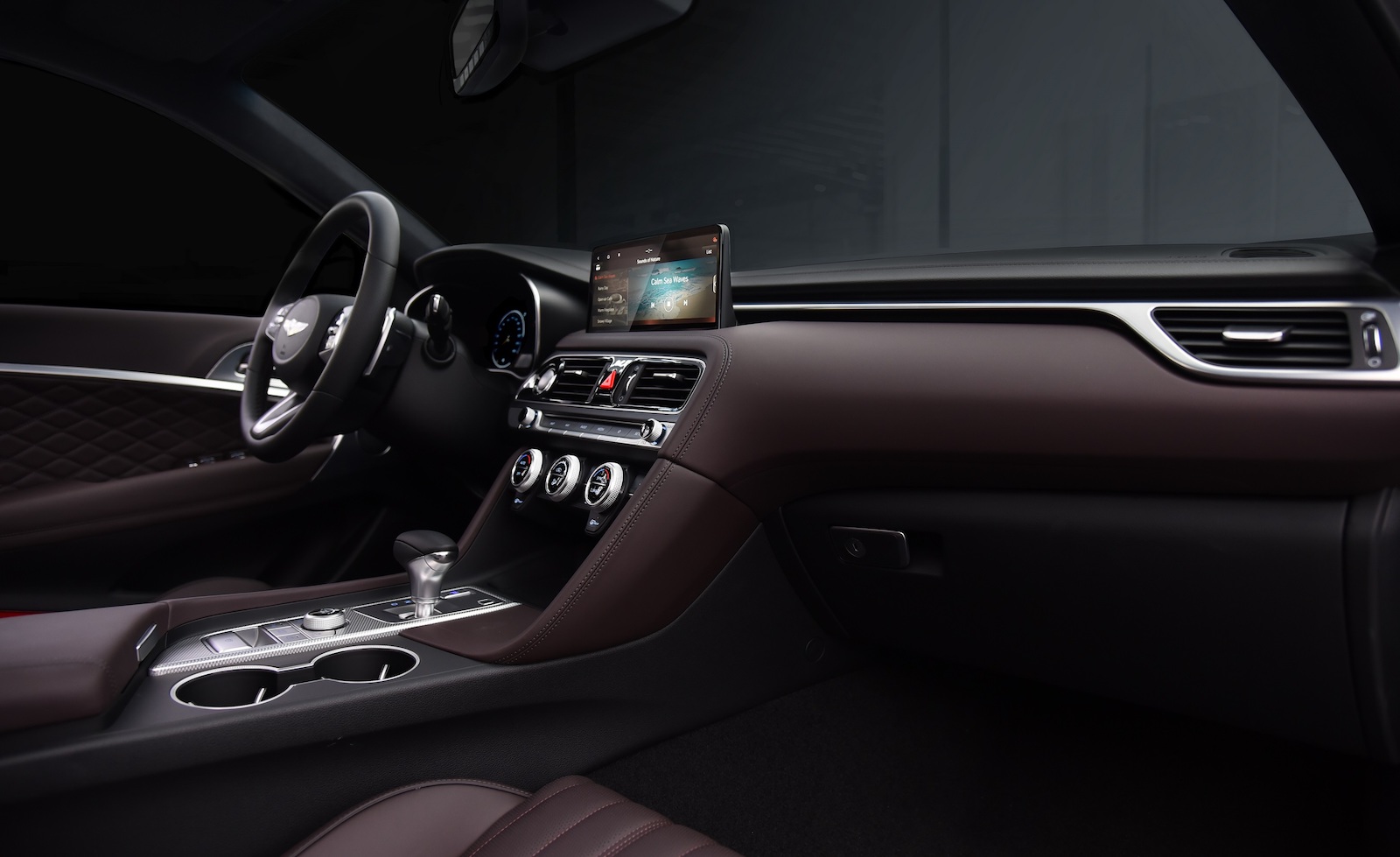
Genesis hasn’t changed much of the interior as the G70 is already a very luxurious and ergonomically designed space to be in. Genesis has, however, has focused on one essential aspect of the interior that fell short previously, the infotainment system. Gone is the old eight-inch infotainment system, replaced with the latest wide 10.25-inch touchscreen. The driver’s digital cluster was also updated to a wider 12.3-inch 3D LCD screen, similar to the system found in the rest of the Genesis range.
The infotainment system now features over-the-air updates for the navigation system, voice-recognition, 360° surround-view camera and a built-in dashcam. The G70 is also mobile-friendly, equipped with a wireless phone charger, Apple CarPlay and Android Auto, as well as the Genesis Digital Key. This basically links the car to your phone via NFC technology, turning your phone into the car key, as well as allowing drivers to control systems within the car digitally.
The G70 is expected to be available in South Korea first, moving to other international markets gradually. While the Genesis brand is still in its growing stages, it certainly makes a strong case for itself, especially against its European competitors.
